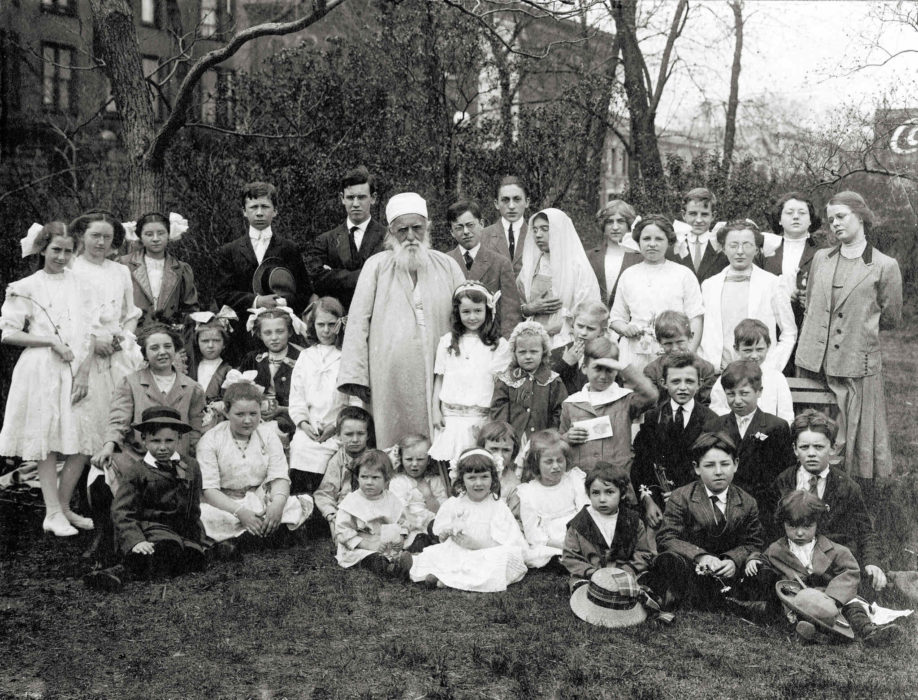IT’S NOT BEEN A month since ‘Abdu’l-Bahá arrived in America, yet he has succeeded in placing himself at the center of virtually all of the nation’s raging debates. He has championed women’s rights. He has challenged whites and blacks to work together. He has argued that, of all nations, America is uniquely capable of leading the world to peace..
He is the unlikeliest of spokesmen: a sixty-eight-year-old Middle-Easterner, recently released from forty years captivity at the hands of the Ottoman Empire, accompanied by an entourage of men wearing fezzes.
But ‘Abdu’l-Bahá has shown that he is entirely at home in America. He converses with ease in the company of scientists, philosophers, businessmen, politicians, and men of religion, whether Christian or Jew.
Racial equality. Social progress. International peace. For ‘Abdu’l-Bahá these matters are fundamentally spiritual in nature. Yet the faith he offers isn’t one of mystical contemplation, though there seems time for that too. As he noted at the temple’s cornerstone ceremony three days ago: spiritual devotion must be manifested in material action.

‘Abdu’l-Bahá argues that the urgent task of the modern world is to create a greater degree of unity in all spheres of human activity. He would concur with President Roosevelt that, “The welfare of each of us is dependent fundamentally upon the welfare of all of us.” But this simple truth gets hidden by religious superstition and social prejudice. Most of the blame, he says, lies at the feet of religion. He has often reminded his audiences that human beings generally worship their own creations.
What is the answer to this spiritual dilemma? Reason, says ‘Abdu’l-Bahá: “It is most certain that if human souls exercise their respective reason and intelligence upon the divine questions, the power of God will dispel every difficulty, and the eternal realities will appear as one light, one truth, one love, one God . . . .”
America, ‘Abdu’l-Bahá says, has a special sense of ingenuity. He will spend a lot of his time with its scientists, inventors and entrepreneurs, as well as those who strive practically for social reform. For him, this is God’s work.






